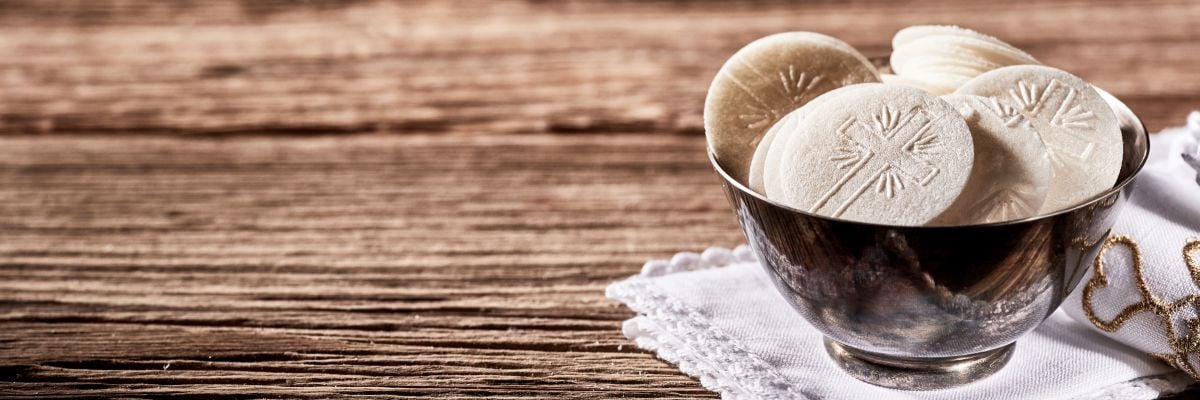
Jim Blackburn explains the subtle theology of why eating the Eucharist does not constitute cannibalism.
Host: Aeres in San Antonio, Texas, listening on Guadalupe Radio. Aeres, you are on with Jim Blackburn, what’s your question?
Caller: My question is: when we eat the Eucharist, how are we not cannibals?
Jim: Okay, Aeres. Great question. Can I ask how old you are, Aeries?
Caller: I am 12.
Jim: 12, okay. That’s a great question, something for somebody your age to be thinking about. And I can tell you that this isn’t something that is really an odd question; it’s something that, in the early Church, there were–the early Christians were actually accused of cannibalism, because we’re eating the body and blood of Jesus when we partake in the Eucharist.
But if we correctly understand what cannibalism is, we can see that that’s not really what’s happening at all. Cannibalism, as cannibalism exists around the world even today, it ultimately would generally require the killing of someone in order to eat that person’s flesh. You know, this is how in some third-world countries cannibalism might happen today, but that’s not what we’re doing in the in the case of Jesus.
Jesus gave us His body. He laid down his body for us, for the forgiveness of our sins and then He commanded us to eat his flesh and drink his blood. In John chapter 6 He tells us to do that. But we’re doing it in an unbloody way.
Now, we receive the Eucharist in the form of bread and wine; it looks like food that we ordinarily would eat, and so we–we’re consuming Him in that way, consuming His flesh in that way, but it’s, we’re not actually digesting it. Something that a lot of people don’t realize is that once we receive the the Eucharist, and it’s entered our stomach and our digestive system, once it loses the appearance of bread and wine and starts to dissolve into the “what it’s made of,” the accidents that change, and it no longer has the appearance of bread and wine, it’s no longer at that point actually the body and blood of Christ.
So the Real Presence of Christ actually leaves at that moment, at that point. So we’re not going on then to digest Jesus, you know, like we would if we were eating the flesh, body, and blood of another human being that we’ve killed to eat as food.
So I hope that helps a little bit, Aeries. It’s a very unique thing that’s happening in the Eucharist, and God Himself has commanded us to do it for our good, because it gives us life, it gives us the supernatural life that we receive from the Sacrament, so it’s a very very good thing.
For further reading about this question, see our answers from Tom Nash and Tim Staples.



